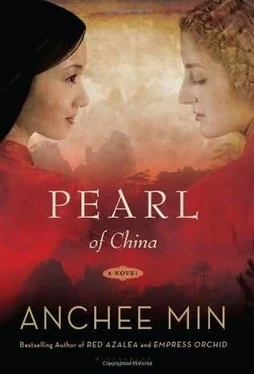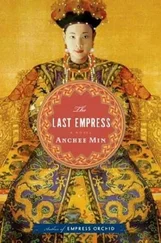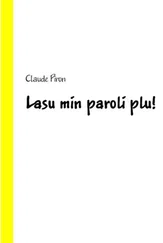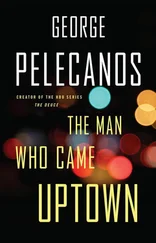She gave me a tired look.
“What?” I asked.
“Don’t.”
“Say it.” I held her elbow.
“Fine.” She turned and whispered in my ear, “I wouldn’t have minded missing Hsu Chih-mo. Tagore is the one I came for.”
“How about I take the young one and you take the old?” I teased.
“Shush!”
The duet on the stage continued. Hsu Chih-mo translated Tagore’s last poem:
I am only waiting for love to give myself up at last into his hands
That is why it is so late and why I have been guilty of such omissions
They come with their laws and their codes to bind me fast
But I evade them ever
For I am only waiting for love to give myself up at last into his hands
People blame me and call me heedless
I doubt not they are right in their blame
“Tagore is lucky,” I whispered to Pearl.
Nodding, she agreed. “Hsu Chih-mo is particularly good at reconstructing Tagore’s sentences into Chinese.”
“Tagore doesn’t seem to fully appreciate it.”
Hsu Chih-mo continued,
The market day is over and work is all done for the busy
Those who came to call me in vain have gone back in anger
I am only waiting for love to give myself up at last into his hands
Pearl and Hsu Chih-mo stood together in front of her class. She had invited the poet to speak to her students the day after his appearance with Tagore. This was before they knew what was going to happen-long before historians wrote about this moment.
I could tell that Hsu Chih-mo was surprised by the excellence of Pearl ’s Chinese. Except for her Western features and the color of her hair, Pearl was Chinese in every way.
“My apologies for the humble reception, but our hearts are sincere.” Pearl smiled and gestured to one of her students to come pour tea for Hsu Chih-mo.
“Long Jing from Hangchow,” Pearl said, taking the tea to Hsu Chih-mo. She bowed lightly after placing the cup in front of him.
In retrospect, it was I who didn’t see that Hsu Chih-mo was attracted to Pearl the moment he laid eyes on her. Her ease and confidence caught him.
“Where are you from?” Hsu Chih-mo asked Pearl, ignoring the class.
In a perfect Chin-kiang dialect, Pearl replied, “The pig is from River North.”
He understood her joke and laughed.
Many southern Chinese called coolies, drifters, beggars, and bandits River North Pigs, because they came from the northern, unfertile part of the Yangtze River and were poor and a lower class. With this joke, Pearl revealed two facts about herself. First, she was a native. Second, she identified with the people. If she had wanted, she could have spoken perfect Mandarin with an Imperial accent.
During the class Hsu Chih-mo discussed his effort in translating Tagore.
Pearl was charming, although her questions were daring. She challenged Hsu Chih-mo on the Indian rhythm compared to the Chinese. She also asked him to explain the art of his translation, especially the difference between being “faithful in appearance” and “faithful in essence.”
Infatuated with Hsu Chih-mo, I was blind and deaf to what was truly happening between him and Pearl.
“What influenced you to become a poet?” a female student raised her arm and asked.
“Craziness,” Hsu Chih-mo replied. “My mother said that I was a spooky child. My eyes were open and my lips uttered strange words at night. Poetry to me was like rocks and cards were to other boys.”
A male student with glasses asked, “You are called the Chinese Shelley. What do you make of that?”
“It doesn’t mean anything to me.” Hsu Chih-mo smiled. “But I am honored, of course.”
“What do you do to make your poems successful?” Pearl asked.
Hsu Chih-mo thought before he replied. “I feel very much like a tailor making a pair of pants. I first study the fabric so I know how to cut it. A good pair of pants takes a great deal of fabric. I make sure that my cuts go with the grain instead of against it.”
A loud voice came from the back of the room. “Mr. Hsu, what is your view of the literary movement in our society today?”
The question threw a boulder into a calm pond. Hsu Chih-mo was stirred. “It disturbs me that our country debates whether or not the Chinese language should be made accessible to the peasants!” His voice resonated. “As we all know, the emperor we overthrew thirteen years ago spoke a private language, which nobody but he and his tutor understood. Our proud civilization and heritage become ridiculous when our language is used to create not communication and understanding, but distance and isolation.”
As the editor in chief of the Nanking Daily, I created, sponsored, and produced the news program China Literary Front. The program was syndicated across all of China. I was able to travel, dine, and converse with some of the brightest minds of our time. But what I enjoyed most was my time with Hsu Chih-mo. He was guarded at first, but I earned his trust. By the end of our work together, we had become good friends. I asked him about the inner force that drove him.
“The inner force is far more important than talent,” Hsu Chih-mo revealed. “Writing is my rice and air. One shouldn’t bother picking up a pen if that is not the case.”
“That is exactly the case with my friend Pearl Buck,” I said.
“You mean the River North Pig?” He smiled remembering her.
“Yes.”
“What has she written?”
“She has written essays, poems, and novels. She is my special columnist. I’ll send you copies of her articles if you are interested.”
“Yes, please.”
As we continued talking, Hsu Chih-mo asked how Pearl and I had become friends.
The problem with people who end up digging their own grave is that they often have no idea they are digging it. Such was my case as I told Hsu Chih-mo stories about my friend.
After Tagore went back to India and Hsu Chih-mo returned to Shanghai, I felt inspired and enlightened. Against my better judgment, I gave in to my emotions. If I had never believed in fate and coincidence before, it wouldn’t be long before I did. When the Nanking University board asked me to help invite Hsu Chih-mo to come back and teach, I did everything within my power to make it happen.
Pearl didn’t think that Nanking University stood a chance of getting Hsu Chih-mo. “He has been teaching at Peking University and Shanghai University,” she reminded me. I decided to play a card that at the time I thought was brilliant. As friends, Pearl and I together wrote Hsu Chih-mo a personal invitation.
A few weeks later, Hsu Chih-mo responded and said he was on his way.
After Hsu Chih-mo’s arrival, the center of China ’s literary society shifted from Shanghai to Nanking. Nanking University became the main stage of the New Cultural Movement. I hosted weekly events featuring journalists, writers, and artists from all over the country. I was so busy that I ate my meals standing up. I hadn’t had time to visit Pearl for weeks, so one evening I decided to drop by.
She surprised me with the news that Lossing had moved out.
“He is living with Lotus,” Pearl said in a subdued voice.
“What about Carol?” I asked.
“Lossing said that Carol wouldn’t know the difference. He insists that she doesn’t even know that he is her father.”
I tried to comfort her. “The important thing is that you are doing the best you can.”
She shook her head.
“You have your own life to live, Pearl.”
“Carol doesn’t deserve this. Her own father abandoning her…”
“Carol may not be aware…”
“But I am!” she almost shouted.
I went quiet.
She began to sob.
I walked to the kitchen to get her a cup of water.
Читать дальше












